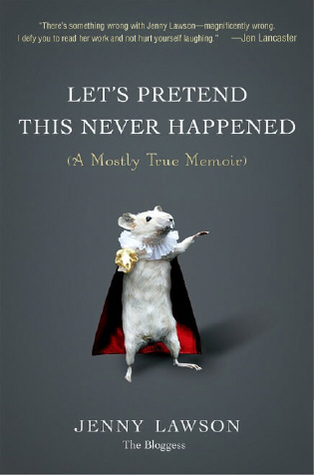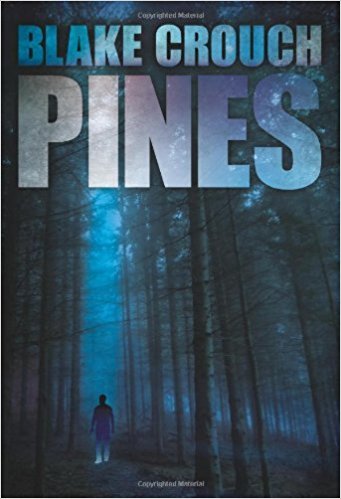
As part of my feature on The Republic of Consciousness Prize for Small Presses I am posting a number of guest reviews written by a couple of my fellow judges. Today I welcome back Paul Fulcher who provides his thoughts on Die, My Love by Ariana Harwicz (translated by Sarah Moses and Carolina Orloff), published by Charco Press.
“People here prepare for winter like animals. Nothing distinguishes us from them. Take me, an educated woman, a university graduate – I’m more of an animal than those half-dead foxes, their faces stained red, sticks propping their mouths wide open.”
My 2017 reading year has focused on the UK’s small independent press scene, source of the most exciting literary fiction. Many were already familiar to me (Fitzcarraldo, Tramp Press, Peirene, Galley Beggar, And Other Stories) but Charco Press is new, not just to me, but to the publishing scene generally. Their name is taken from the colloquial expression ‘cruzar el charco’ meaning ‘crossing the puddle’, a way of referring to when someone is going overseas, or travelling between continents, and their mission is to bring exciting Latin American literature, via translation, to the UK. Their mission statement is worth quoting in full:
“Charco Press was born from a desire to do something a little out of the ordinary. To bring you, the reader, books from a different part of the world. Outstanding books. Books you want to read. Maybe even books you need to read.
Charco Press is ambitious. We aim to change the current literary scene and make room for a kind of literature that has been overlooked. We want to be that bridge between a world of talented contemporary writers and yourself.
We select authors whose works feed the imagination, challenge perspective and spark debate. Authors that are shining lights in the world of contemporary literature. Authors whose works have won awards and received critical acclaim. Bestselling authors. Yet authors you perhaps have never heard of. Because none of them have been published in English.
Until now.”
Die, My Love by Ariana Harwicz was one of their two launch books last Summer and tells the story of an unnamed new mother and her – strikingly also unnamed in her narration – husband and first born child, six months old as the novel opens. It is a visceral and haunting story of post-partum depression which begins:
“I lay back in the grass among fallen trees and the sun on my palm felt like a knife I could use to bleed myself dry with one swift cut to the jugular. Behind me, against the backdrop of a house somewhere between dilapidated and homely, I could hear the voices of my son and my husband. Both of them naked. Both of them splashing around in the blue paddling pool, the water thirty-five degrees. It was the Sunday before a bank holiday. I was a few steps away, hidden in the underbrush. Spying on them. How could a weak, perverse woman like me, someone who dreams of a knife in her hand, be the mother and wife of those two individuals?”
This is not a mother who is sentimental for her child or the mystery of birth:
“If I’d closed my legs and grabbed his dick, I wouldn’t have to go to the bakery for cream cake or chocolate cake and candles, half a year already. The moment other women give birth they usually say, I can’t imagine my life without him now, it’s as though he’s always been here. I’m coming, baby! I want to scream, but I sink deeper into the cracked earth.”
University educated and from urban surrounds, the French countryside where she lives also depresses her:
“These people are going to make me lose it. I wish I had Egon Schiele, Lucian Freud and Francis Bacon for neighbours; then my son could grow up and develop intellectually by learning that there’s more to the world I brought him into than opening old skylights you can’t see out of anyway. As soon as all the others had escaped to their rooms to digest their meals, I heard my father-in-law cutting the grass beneath the snow with his new green tractor and thought that if I could lynch my whole family to be alone for one minute with Glenn Gould, I’d do it.”
Harwicz wrote the book listening ‘obsessively’ to Beethoven’s Piano Sonata n. 13 in E flat major, Op. 27 n. 1 and Glenn Gould‘s rendition of part of the Sonata captures the book’s mood.
As the novel progresses, in a stream of fevered thoughts, it is not always clear what actually takes place and what – notably an affair with another parent in the locality – is imagined:
“My baby was practically asleep on his feet but he still went on stumbling through the house, holding onto the curtains and the century-old coffee tables and throwing whatever he found to the floor. Ashtrays, cutlery. Maybe he was staying awake to make sure I didn’t spend the night in another man’s arms. It was a long time before I was finally able to put him in the cot, stop his crying, turn the pages of one of his books about astronauts or sea captains and convince him that the best thing you can do at night is sleep. Mummy’s telling lies.
[…]
As soon I stepped outside, I saw him and forgot about everything that had come before, about the smouldering house, about my little soldier sleeping with his eyes open like a rabbit, about all those days of anguished anticipation. And I devoured him. Because that, my dear son, is what the night is for.”
But her relationship with her, even in her account, remarkably patient husband is characterised by an extreme form of love-hate:
“We’re one of those couples who mechanise the word ‘love’, who use it even when they despise each other. I never want to see you again, my love.”
(and some years later at her son’s birthday party)
“Something made me rush inside and shut myself in my bedroom, slamming the door behind me. I hope you all die, every last one of you. As usual, he came knocking on my door. Darling, honey, sugar, sweetheart, my bunny rabbit, my love, I can’t remember all the names he called me. And I said nothing. Are you okay? And I still said nothing. Come out, all the guests are leaving, don’t ruin this. Where are the party bags? And I said, Why don’t you leave me the hell alone and die. Just die, my love.”
The contemporary translation by Sarah Moses (Asymptote’s Editor-at-Large for Argentina) and Carolina Orioff (Editor and Co-Director of Charco Press) adds to the power of the work.
It has, as other reviewers have noted, a flavour of Fever Dream meets Sorry to Disrupt the Peace. A striking novel, and I was immediately prompted to subscribe to Charco Press’s forthcoming releases.
PF
You may read my review of Die, My Love here.
Coming later this week, a guest post from the publisher and an interview with the author of this book.
Keep up with all the news on The Republic of Consciousness Prize for Small Presses by following on Twitter: @PrizeRofc
Advertisements Share this:




